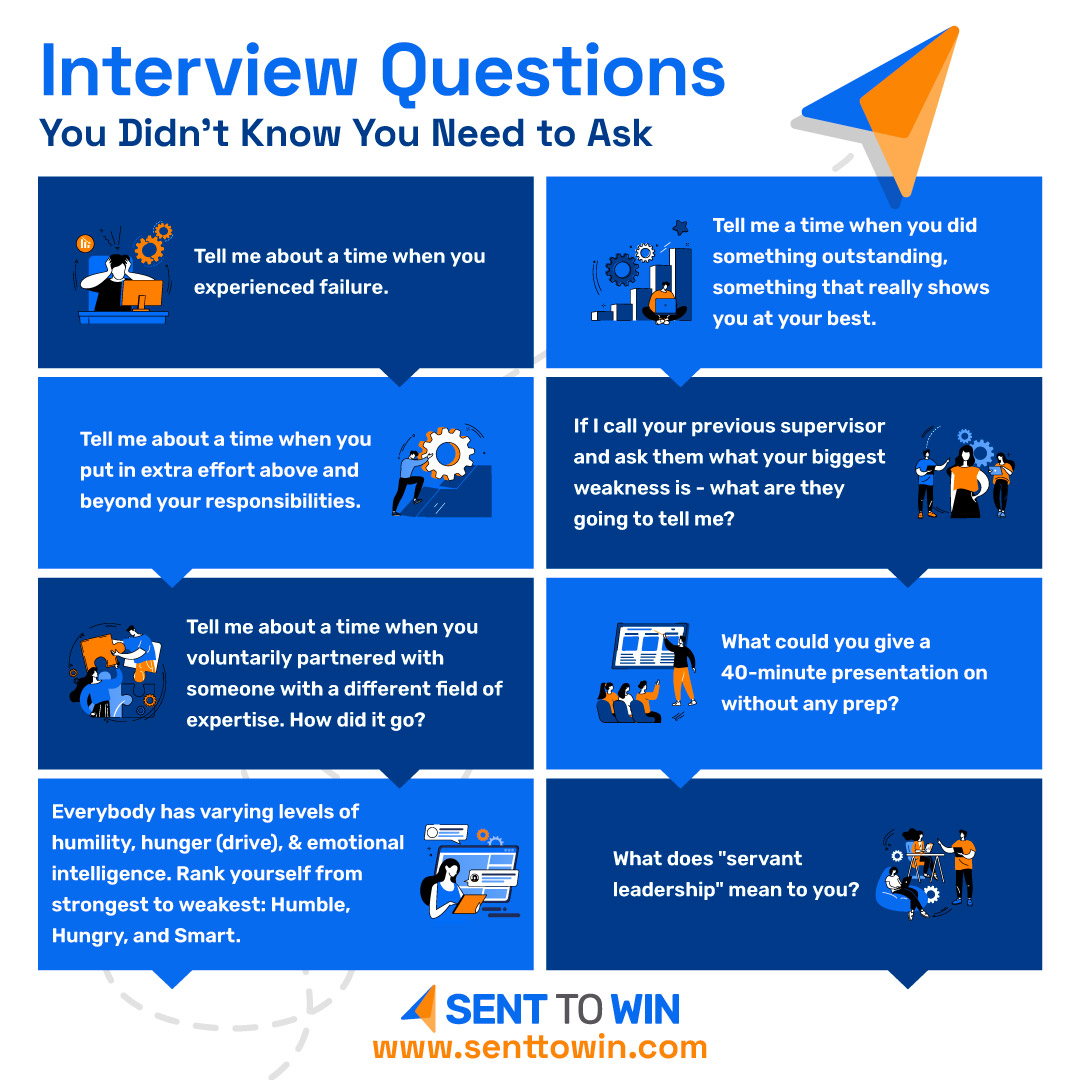Interview Questions You Didn’t Know You Need to Ask
In today’s newsletter:
- Interview Questions You Didn’t Know You Need to Ask
- “Half of my marketing’s working. I just don’t know which half.”
- Tractor Supply, Market Watch, and Banana Scalpers
- Dolly Parton: Business Mogul and Country Music Star on Walking in Faith
Turnover is expensive.
It can easily cost 1/3 of an employee’s annual salary to replace them, and some estimates quote much higher figures. This is to say nothing of the lost productivity, bad performance, and lost clients that can result from having the wrong person in a given role.
Every business owner and executive knows that hiring is a high-stakes activity, and it’s important to get it right the first time.
However, the numbers are not encouraging here. According to a new book by Bart McCollum and Dr. Gerald Hannah, Ph.D., hair care company L’Oreal tracked the efficacy of their hiring methods and was not pleased with the results. Using traditional interview and vetting techniques, they hired several salespeople and then ended up having to fire 41% of them. The good news, however, is they shifted tactics and tested a Behavioral Event Interview style (BEI) for their hiring decisions, and they had much greater success. With employees selected using BEI, a method based on the research of Dr. David McClelland of Harvard, L’Oreal only had to fire 15% of its salespeople hired.
I sat down with Mr. McCollum – a CEO and cultural turnaround expert – and Dr. Hannah – a longtime business consultant and researcher – to understand how we can shift our understanding of the interview process and come out with successful outcomes again and again.
After all, the best way to reduce turnover is to pick the right candidate as much as possible.
“It’s really hard to interview well,” Bart explains, “and most people are really bad at it. There’s only so much you can know about a person and how they’ll behave and perform based on a conversation.”
Dr. Hannah nodded his agreement.
“Yes, but thankfully Dr. McClelland’s work on ‘behavioral competencies’ led to a whole methodology on selecting top talent. When put into practice, it doubles the effectiveness of the selection process.”
When I asked how this was possible, they explained that typical interview questions are designed to draw correlations from hobbies, attitudes, and answers to hypothetical questions with future performance. It doesn’t really work, because people are going to tell you what they think you want to hear. So what should you be asking a candidate instead?
“Targeted questions,” Dr. Hannah replies. “You’re looking for examples of specific behaviors they’ve displayed in the past. So tell them, ‘Use the pronoun “I,” not “we,” and have them keep their answers to things that have happened in the last two or three years. You might ask, ‘Tell me a time in the last 2 or 3 years in which you experienced failure.’ Then I count to about ten. If they don’t answer by then, I add, ‘Or when you experienced a major, major disappointment at work.’ They’ll come up with something. But what’s interesting is a very talented person will say, ‘I can think of 3 or 4. Which one do you want?’ This shows self-confidence, achievement orientation, and humility, which correlate to emotional intelligence behaviors.”
While the candidate is answering, they explain, take notes on what behaviors they are describing. Ask them what they were thinking, feeling, and specifically doing in regard to the past event you asked them about. Doing this correctly requires a little bit of reading up on core behavioral competencies, as well as figuring out what sorts of behaviors and values are most crucial for success in your company.
“You need a clear set of values,” Bart says. “Ask, ‘What has made us successful before?’ and then identify specific behaviors that led to those outcomes.’ So for example, in my current company, we’re hiring people who need to be very responsive and organized. So we’ll ask people in an interview, ‘How many unread emails do you have in your inbox right now? Show me right now.’”
Some people will show him a clean inbox, others will say they let it get to 20 emails and then block out time to get it back to zero, and still others… have 52,000 unread emails.
For certain roles, that isn’t going to matter much. But for a role that requires quick responses and organization, you want the guy who has to keep his inbox at 0.
This method of doing this is not looking for answers or ideas, it’s looking for objective reality. How many unaddressed emails do you actually have in your inbox right now? What behaviors can you prove to me that you exhibit?
This is far more effective than having people answer hypothetical questions, in which they amazingly always perform perfectly. A good hiring manager needs to look for what has been done already.
“It’s scary how accurate the behavioral method is,” Dr. Hannah says. “You will see a great resume sometimes, with outstanding support letters… but then you do the behavioral interview and there is no data for relevant behaviors. This person seemed good, but there is no specific evidence for that in what they are doing, so most of the time, that really does mean you’d be right not to hire that person.”
Bart agrees.
“You’re asking people to give you an example of something specific they’ve done in the past, setting the scene, and getting particulars. The behavioral strategy is difficult, but it’s effective.”
If you’d like to learn more about the behavioral competencies behind this hiring method, check out McCollum and Hannah’s new book, You Before Me: A Novel about How Smart Leaders Overcome Foolish Behaviors to Build Amazing Organizations.


“See? I knew you were absolutely the right man for the job when I said, ‘What is your biggest weakness?’ and you said, ‘I work too hard.’ That’s just what we’re looking for!”
“Half of my marketing’s working. I just don’t know which half.”
(In Partnership with Fidelitas)
If the old adage rings true for your business, it’s time you had a conversation with Fidelitas. Fidelitas, the like-minded marketing and PR agency that executes this newsletter, is a results-focused agency that has helped large, 9-figure public companies and pre-revenue startups alike grow with measurable results.
Fidelitas focuses on KPIs that actually impact your bottom line and integrates single channel and full-service solutions for a wide variety of B2B and BC brands as well as non-profits and professional sports teams.
Take advantage of a free strategic audit for qualified businesses when you email info@fidelitas.co and mention Sent To Win.
Your P&L will be glad you did.
INDUSTRY INSIGHTS
Tractor Supply, Market Watch, and Banana Scalpers
Tractor Supply
Feed store and retail chain Tractor Supply stepped in manure last month when internal Diversity, Equity, and Inclusion (DEI) priorities were exposed by conservative activist Robby Starbuck. The store, which caters largely to rural, conservative-leaning Americans, watched in horror as the backlash grew over a few weeks, tanking their stock 10%. On June 27th, Tractor Supply released a statement backing away from DEI initiatives, promising to eliminate DEI jobs at the company and to stop donating to pride parades, among other things. Their stock has not yet recovered, however, and some commentators believe they’ve sparked backlash on the other side of the political aisle. For his part, Starbuck intends to “blitz” other companies who have primarily conservative constituencies in the future, to ensure that people are shopping their values.
Market Watch
The Dow Jones continues its historic bull run, sitting now well above 40k after a jump of 500 points, a jump that has seen more than just tech stocks benefiting. The NASDAQ, for its part, is up about 3% on the month. Gold hit an all-time high Tuesday, possibly in expectation to future volatility in the stock, real estate, and currency markets. In other commodities news, Bloomberg a list of “5 Key Charts” to keep an eye on in the global commodities market. Bitcoin has rallied somewhat in recent weeks, recovering to its approximate price one month ago. Core CPI rose just 0.1% from May to June, and core goods prices fell for the first time since COVID. Unemployment held steady last month at 4.1%, and 30-year fixed mortgage rates continue to hover around 6.6%.
Banana Scalpers
Picture this: seats at a baseball stadium for the whole family, meals and concessions included, wild antics in the game, baby races between innings (yes, baby races. It’s adorable), and all of this for just $35 a ticket. Well, you don’t have to imagine it, because this is the actual price for a ticket to a banana-ball game – sort of a Harlem Globetrotters but with baseball instead of basketball and slightly more of an actual game going on. There’s a reason Savannah Banana games have quickly become a family favorite for entertainment – but there’s a problem. The games are so popular that you simply cannot get tickets, and scalpers are taking advantage of the sport’s growing popularity by buying up the limited seats and jacking up the price to hundreds of dollars each, a practice the Savannah Bananas are cracking down on. One way they do this is by verifying email addresses with related cell phone numbers. When there are inconsistencies (such as 17 email addresses tied to the same phone number, or 10 emails from the same IP address each purchasing 10 tickets) and they identify a scalper, they are able to take legal action. Not only is this new sport highly innovative from a business standpoint – essentially mixing minor-league sports entertainment with circuslike sideshows – their dedication to providing value and keeping ticket prices low has rightly earned the loyalty of their fans. Yet scalpers present a unique problem, and time will tell if the Bananas are successful in putting a stop to this illegal practice.
Sunday School
Q. In which book of the Bible does “Onesimus” appear?
A. Philemon. Onesimus is the name of the runaway slave that Paul urges the former owner (Philemon) to receive back not as a slave but as a son and a beloved brother in the faith.
TIPS & TRICKS
Dolly Parton: Business Mogul and Country Music Star on Walking in Faith
She might be best known for legendary country hits such as “Jolene,” “Yellow Roses,” or “I Will Always Love You,” but many people are unaware of just what a business mastermind Dolly Parton really is. Her net worth is a jaw-dropping $650 million – which is all the more impressive when you consider how much money this woman has given away through her foundations and charitable giving. Early on in her music career, Parton realized that she needed to own the rights up and down the process, so she started her own record label, bought the tour buses, etc. As a recording artist, she realized the need for vertical integration in an era when this was rarely, if ever, done. She has made quite a career out of television and film, as well, always sharp in her business dealings on the back end of these endeavors, and she owns and operates multiple entertainment venues, hospitality services, and restaurants.
One of the key elements of her success is Dolly’s penchant for buying up the entire process in a given enterprise. Therefore, if you want to go to her theme park Dollywood, you’ll likely end up staying at her hotel, eating at her dinner-theater business, and buying her merchandise. In everything that she does, Dolly has been consistently able to control the supply chain and the value-added process in every link of the chain.
Dolly Parton is a real operator.
In the past few years, Dolly Parton has been catching attention for collaborating with prominent Christian artists, such as For King and Country and Zach Williams on explicitly faith-based songs such as “God Only Knows” and “There Was Jesus.”
For longtime fans of her work, this shouldn’t be a huge surprise. Dolly Parton has never been shy about her faith in God.
“My faith impacts everything I do because I do believe that, through God, all things are possible,” she said last year in an interview with Fox. The granddaughter of a Pentecostal minister, Dolly came up in the faith and never let it leave her heart. “I grew up with a Bible background,” she says, “and I’m glad I did. I know my Bible stories.”
In some ways, Dolly Parton does not fit neatly into a category. She is open about her faith, her daily prayer life, and her love for Jesus, though she does not attend church regularly and occasionally holds political positions many Christians would disagree with. Be that as it may, she certainly gets the heart right:
“I just try to live through love as much as I can,” she says, and it shows in her philanthropy. Dolly Parton has a strong passion for children, literacy, and making a place for families to thrive. She has given away countless scholarships, donated money to medical needs, given to victims of natural disasters, and, to date, she has given away 200 million books to children through her Imagination Library. In fact, it is estimated that 10% of children in the United States have benefitted from her programs.
Reported to be gracious and kind to fans, Dolly Parton is a wonderful example of Christian generosity and using the proceeds of her hard work to do some good in the world.
May many more of us strive to “live through love” in our lives and business dealings.
Quick Hits
- CNBC offers 5 budgeting strategies to combat the challenges of inflation.
- Christian billionaire and philanthropist Bill Hwang found guilty of market manipulation, and defrauding banks.
- A slowdown in consumer price increases in June has some investors optimistic for a future interest rate cut.
- Christian research group Barna releases results of their “Faith and AI” survey, chronicling
- Christians’ attitudes toward the ethics of artificial intelligence technology.
Our “Interview Questions” graphic was generated using AI prompts. Guess the prompt for your chance to win Sent To Win gear. Just reply to this email with your best guess.
For Kingdom Leaders, By Kingdom Leaders
Bringing Kingdom-minded leaders like you fresh perspectives and insights on business, finance, and leadership trends.









